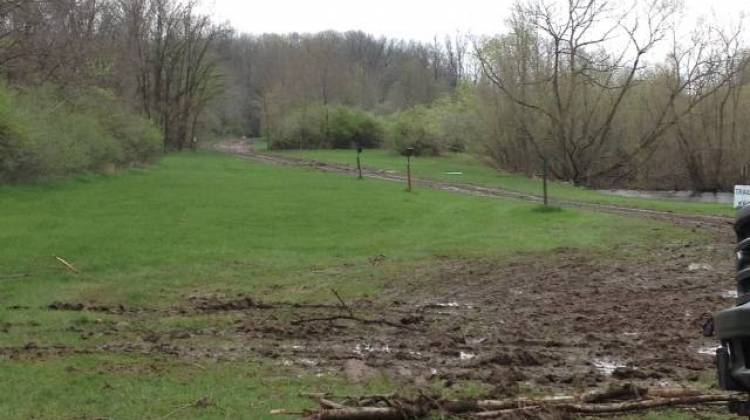A wetland restoration project is underway at Eagle Creek Park where work to support local wildlife and maintain the natural ecosystem is ongoing.
Brittany Davis Swinford, senior park manager of Eagle Creek Park says many species live in vernal pools in the park. The pool is a distinctive type of wetland habitat that can support common and rare native species and the project will restore a 120 acre area back into a forested wetland.
Davis Swinford says much of the country's wetlands have been lost to agricultural settlement.
"Only 5 percent of our land is wetland habitat, however over 35 percent of our endangered species inhabit wetlands so we did something a little wrong right there." comments Davis Swinford.
The restoration project being coordinated by the city and the U.S. Army Corps of Engineers and will support a great diversity of Indiana wildlife.
"We have over 265 bird species that are found at Eagle Creek Park, that’s of the 400 found in Indiana over half of them are here in the park." says Davis Swinford.
Indianapolis was recently named a Top 10 City for Wildlife by the National Wildlife Federation. The city boasts more than 900 certified wildlife habitats, the 2nd most of any major U.S. city.
The mitigation project includes planting 11,000 trees, clearing drainage tiles and protecting the space from browsing animals, like white-tail deer, for the next three years.
Eagle Creek Park already has already dedicated 620 of more than 3,900 acres of forest to restore natural features.
 DONATE
DONATE









 View More Programs
View More Programs

 Support WFYI. We can't do it without you.
Support WFYI. We can't do it without you.